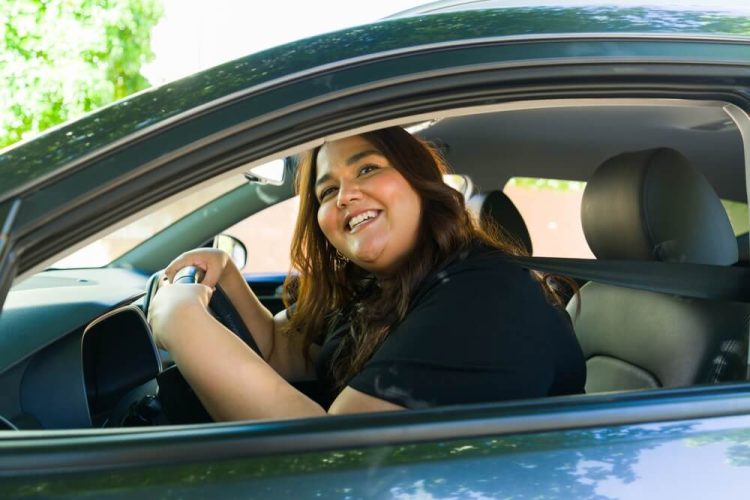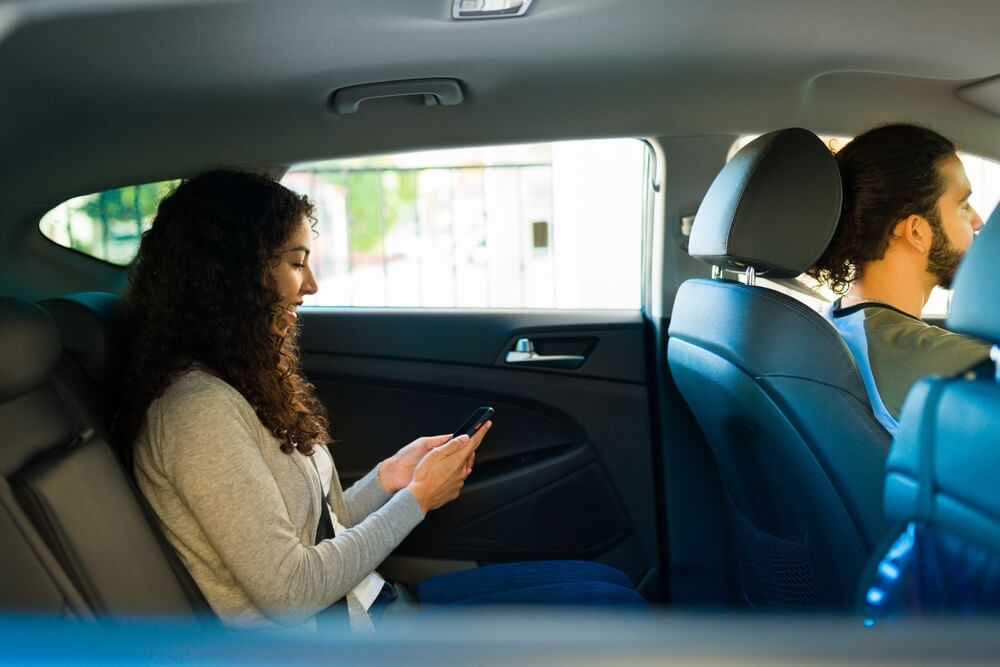
Driving for apps like Uber and Lyft can be a great way to earn some extra cash or even make a full-time income, but it can also make your auto policy a bit more complicated. Rideshare insurance is designed to simplify the process and ensure you’re always covered, whether you’re using your car for personal reasons or making money on apps like Uber and Lyft. Making sure you have the right coverage before you start ridesharing is the best way to avoid unexpected costs and keep your liabilities low.
When Your Car Doubles as Your Office: The Insurance Implications
You may already know that commercial vehicles need a different type of insurance than personal vehicles. When you own a business, you’re taking on more liability than the average person, so you need to understand how commercial auto insurance works to cover any work cars or trucks.
But what if you occasionally use your personal vehicle for business purposes? Does your car insurance cover your rideshare gig? The answer is, whenever you use your own car for driving gigs, it essentially becomes a commercial vehicle, which means you might need to upgrade your policy.
Most types of individual plans won’t cover your car while you’re using it for business purposes. If you get into an accident while you’re clocked in on a ridesharing app, your individual policy could potentially deny your claim. As a result, you could be on the hook for repairs to your car and other damages, such as medical bills for your passenger or other drivers.
Myth-Busting: Is Standard Auto Insurance Enough for Rideshare Drivers?
Because personal car policies are only designed for personal use, you’ll need extra car insurance for ridesharing if you decide to make an account with a transportation network app. So what kind of protection do you need?
Firstly, it’s important to note that these apps do provide you with a bit of a safety net. Rideshare app companies are legally required to provide some basic coverage for their drivers. Uber car insurance and Lyft car insurance offer basic commercial coverage to ensure you’re not liable for passenger injuries or damage to other drivers. The details can vary from company to company, but they typically include basic liability, bodily injury, and property damage coverage.
You may be wondering: If I have insurance for Uber and Lyft through commercial options, why do I need rideshare insurance?
The answer is simple: These plans can help out, but they may not cover all of your expenses. The company-provided plan will only kick in when you’re logged into the app and using your car for a gig. What if you happen to run a personal errand in between rides? What if you get hit right as you’re clocking out for the day? In that case, you may get pushback from both your personal policy and the commercial policy.
Luckily, you can get a special rideshare endorsement on your personal auto policy. This endorsement is designed to fill in any gaps between the company policy and your individual plan.

Crashes in the Gig Lane: Addressing Potential Coverage Gaps
Rideshare endorsements can extend multiple types of coverage from your personal plan, making sure you’re fully protected. That includes liability, collision, and comprehensive protection for your vehicle, along with bodily injury protection. This extra endorsement can increase your limits or offer protection in gray areas between personal and commercial driving. If the app only provides liability insurance, you can use a full coverage endorsement to ensure you’ll receive help paying for your own repairs, even if you caused the accident.
An extra endorsement can also help you avoid paying costly deductibles for the in-app commercial plan. For example, Uber charges a $2,500 deductible for some situations. If you have your own rideshare endorsement, it will kick in first, potentially allowing you to avoid some or all of this deductible, so you won’t have to pay thousands out of pocket.
Bridging the Gap Between Personal Use and Professional Driving
When you’re protected with a personal plan, an extra endorsement for gig work, and company-provided coverage, you won’t have to worry on the road. However, the way you file a claim could vary depending on the specifics of your situation. Understanding what falls under rideshare vs. personal auto insurance can help you in the filing process.
Recognizing the Trigger Points: From Personal Commute to Passenger Pick-Up
If you get into an accident while a paying passenger is in the back seat, that’s a clear-cut situation where you would use your ridesharing endorsement. Meanwhile, if you’re commuting to a ridesharing hot spot and haven’t clocked in on the app yet, you will probably need to file with your personal policy.
One of the biggest gray areas is when you’re clocked in on the app, but haven’t accepted a ride yet. Ridesharing apps typically provide less protection if you don’t have a passenger in your car, even if you’re clocked in.
If an incident occurs while you’re logged in on a ridesharing app, it’s important to follow in-app procedures and communicate with your own insurer. The extra gig work endorsement will make it easy to get the appropriate financial support, whether it comes from your personal insurer or a company like Uber or Lyft.
Finding the Right Policy to Cruise with Confidence
Rideshare endorsements are optional, so you can decide what kind of plan works for you. Carefully review both your personal policy and the policy limits of your ridesharing app to identify any gaps and decide how much risk you’re willing to take on. Because a single accident could potentially rack up tens of thousands of dollars in expenses, it’s best to be on the safe side. Plus, the extra endorsement is pretty cheap compared to getting an entirely separate policy.
Getting extra coverage can be even more important, depending on where you live. Some states legally require ridesharing companies to provide more extensive coverage than others. If you live in a state with less coverage, you could be at greater risk. Ask your independent agent to help you identify gaps and find the perfect plan for your side hustle in the gig economy.
Get Covered with Freeway Rideshare Insurance
Rideshare insurance can be the difference between paying a huge bill and having an accident completely covered. Because there can be gaps between personal and commercial insurance, getting a simple endorsement is the best way to protect your finances.
If you drive for Uber or Lyft, don’t rely on company-provided insurance that offers the bare minimum. Reach out to the team at Freeway Insurance to find an affordable plan that gives you the peace of mind you deserve. You can get started by visiting us in person, requesting an online quote, or calling (800) 777-5620 to ask about your rideshare coverage options.



